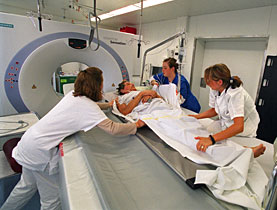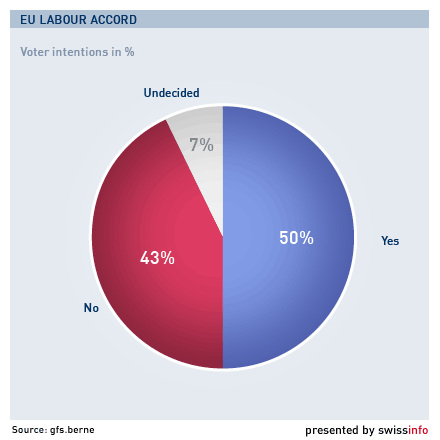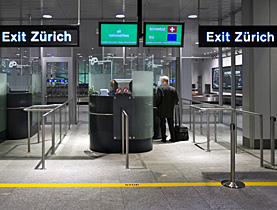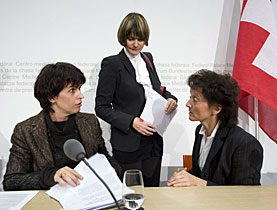Labour vote will be close, says poll

Next month's nationwide vote on continuing and extending a labour accord with the European Union is likely to be close, according to the latest opinion poll.
Supporters, including the government and the business community, have a slight advantage over the rightwing Swiss People’s Party in a face-off with crucial ramifications for relations with the European Union.
“The campaign has been tough. Emotions are running high and there’s no doubt about the positions of both sides,” says Claude Longchamp of the gfs.berne research and polling institute.
“The yes camp – made up of three of the four main political parties, the government, the business community and the trade unions – maintains the lead, and economic reasons will be decisive,” he said on Wednesday.
Pollsters found that 50 per cent of citizens want to approve the labour accord, while 43 per cent said they would reject it. Seven per cent were still undecided when they were interviewed last week.
However, Longchamp says the margin is too small to make a definite forecast.
He pointed out the clear divisions between supporters of rightwing groups and the other political parties, between citizens in rural and urban areas as well as between those with higher and low professional qualifications.
Differences between the various language regions appear to have levelled out to some degree.
The French-speaking region remains the most Europe-friendly, ahead of the German-speaking region. The Italian-language part of the country remains more wary of labour markets which are equally accessible for Swiss citizens and foreigners.
Confusion
There are indications that some Swiss are confused over the issue at stake on February 8, according to Longchamp.
“About one in four citizens, particularly people who don’t consider themselves as independents, appears to be puzzled over the arguments on both sides and they are therefore sceptical,” he said.
Longchamp pointed out that the coming days will be crucial for people’s voting intentions.
“A decisive factor is whether citizens give more importance to the perceived necessity of the labour accord for the economy. Or whether they are swayed by the arguments of the opponents,” he said.
The People’s Party argues that the vote is undemocratic because parliament decided to lump together into one question the issue of continuing the labour accord, which first took effect seven years ago, and its extension to Bulgaria and Romania.
The rightwing also warns of a wave of foreign labour which they say will strain Switzerland’s social security system.
Other reasons used in the campaign have failed to convince citizens, according to Longchamp.
He says neither fears of an increase in foreign criminals, peddled by opponents of the accord, nor concerns about an annulment by Brussels of a set of bilateral accords on trade, labour and transport are having an impact.
Similarities
Experts highlighted similarities between the latest poll and surveys ahead of a previous vote nearly four years ago on the extension of the labour treaty to countries in eastern Europe.
“The figures were almost the same, but the economic situation has changed compared with 2005,” Longchamp said.
Voters eventually approved the labour treaty – also known as free movement of people agreement – with 56 per cent for and 44 per cent against.
Longchamp said that a similar result could be expected on February 8 based on the data from the opinions polls.
“But given the economic problems, the opponents are likely to make more than 44 per cent and the result could be tighter this time,” he said.
swissinfo, Urs Geiser

More
Free movement of people
Voter intentions: 50% yes (+1%), 43% no (+3%), 7% (-4%) undecided (compared with poll early in January).
Expected turnout: 46%.
The poll was carried out among 1,211 people across the country between January 19 and 24.
It was commissioned by the Swiss Broadcasting Corporation, swissinfo’s parent company.
On February 8 voters will decide on continuing the labour accord with 25 EU states and extending it to the latest two EU members, Bulgaria and Romania.
A previous vote in 2005 on extending the treaty to ten new member states in eastern Europe won a 56% majority at the ballot box.
Voters first approved the labour treaty with the 15 old EU member states with a 67% majority in 2000. It took effect from 2002.


In compliance with the JTI standards
More: SWI swissinfo.ch certified by the Journalism Trust Initiative




You can find an overview of ongoing debates with our journalists here. Please join us!
If you want to start a conversation about a topic raised in this article or want to report factual errors, email us at english@swissinfo.ch.